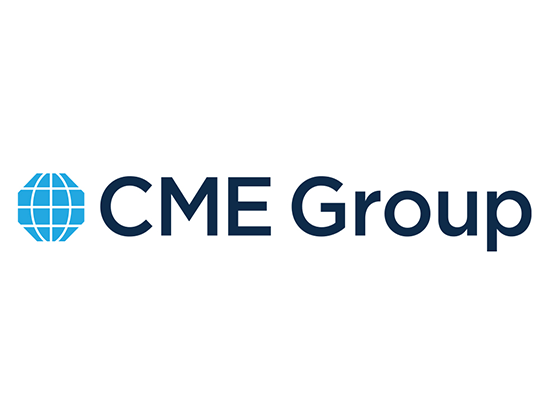The trend towards Cloud Repatriation
Cloud Repatriation means the withdrawal of workloads out of the public cloud back into on-prem environments, either bare metal, colocations or managed private and hybrid cloud platforms. It is a trend that technology infrastructure commentators have been highlighting since 2018, when an International Data Corporation Cloud and AI Adoption Survey identified 80% of customers were redeploying data storage and processing onto local platforms within their immediate control. It feels like a regressive step. After all, aren’t Digital Transformation and Cloud Technology the way of the future?
Escape route
There are many emerging reasons for the trend, not least of which is that of escape. Expensive and poorly thought through ‘lift and shift’ programmes, perhaps exacerbated by the pandemic, may have prematurely lured organisations into Digital Transformations for which they were not ready. In these cases, back-pedalling from the Cloud would seem like the safest option.
Notwithstanding, the majority of companies are more likely to have had a more sophisticated experience of cloud technology and have benefitted hugely from the scalability, flexibility and cost efficiency potential of virtual environments.
So what are the real reasons organisations are giving for their Cloud Repatriation escape?
Service costs
There comes a point in a company’s cloud transformation journey when the law of diminishing returns inevitably sets in. Although there are initial cost savings to be gained from decommissioning hardware, subscribing to managed services, and releasing capital spend budgets in favour of greater flexibility, once an organisation reaches a certain scale and maturity with their Cloud provision they can see the service costs skyrocket.
In response the main hyperscalers have developed their Cloud Repatriation offerings in the shape of hybrid clouds AWS Outpost, Microsoft Azure Arc and Google Anthos. Each solution offers the high degree of technological sophistication that one might expect from such big players, but not all of them offer the same level of multi-cloud flexibility. Nor do they necessarily guarantee that businesses will have better cost control from their deployment. This indicates a business outcome blind spot amongst the hyperscale cloud providers, and an omission of understanding that the trend towards Cloud Repatriation is not a reflection of the technology as much as of the spiralling service costs.
Vendor lock-in
In April 2023 the UK’s communications regulator Ofcom report highlighted how limited interoperability, cynically offered loyalty discounts and the soaring cost of data egress fees were prohibiting Cloud MSP customers from taking advantage of services from multiple cloud providers. This anti-competitive behaviour threatens to reduce flexibility and performance optimisation opportunities, and contributes to vendor lock-in. It also makes it more difficult for smaller and innovative providers to gain a foothold in the market. Given that the main providers of public cloud inhabit a combined market share of 60 – 80%, the watchdog is looking to recommend a Competition and Markets Authority investigation into cloud technology provision in autumn 2023.
From a business outcome perspective, the current status quo within the generic cloud market has the potential to stifle agility and foster apathy in businesses who feel stuck in prescribed Infrastructure-as-a-Service (IaaS) scenarios.
Implications for the financial trading sector
Nowhere have the shortcomings of generic public cloud technology been more dramatically highlighted than in the fast-moving Capital Markets trading environment.
Here the ‘one size fits all’ approach of public cloud has been historically reflected in the sector’s hesitancy to adopt Cloud Technology. The main concerns hyperscale providers cannot meet are around security, regulatory requirements, ultra-low latency performance and system monitoring and management – all vital ingredients in Capital Markets trading technology.
Organisations in this space will shy away from services which do not allow maximum control over data locality and sovereignty, and which threaten optimal performance.
Consequently, this has made Cloud Repatriation in financial trading businesses less of a linear regression and more of a constant feature of innovation and IaaS provision. Gordon McArthur, CEO of financial cloud infrastructure specialist Beeks Group, comments: “In a way Capital Markets need to operate a constant ebb and flow of shifting workloads for maximum flexibility, intelligent load-balancing, and performance optimisation. Public cloud is still part of the toolkit for non-critical workloads, but a dedicated financial platform needs to be local and vendor neutral.”
Advantages of on-prem provision
There are clear and obvious advantages of situating workloads on-prem in the capital markets industry. “Providing secure local connectivity, data sovereignty and ultra-low latency have always been Beeks’ start point,” McArthur says. “Since 2011 we have honed a selection of on-prem cloud offerings to suit the requirements of our customers. We are specialists in private cloud IaaS and we now offer fully managed and monitored connectivity infrastructure to Exchanges themselves.”
“This means Exchanges become their own on-prem cloud provider and can begin to turn a profit from their resident businesses’ cloud usage,” McArthur says.
Choosing the correct MSP
“It’s vital that companies work with MSPs who understand their operation and industry sector and who can provide outcome-based solutions rather than mere technology,” says McArthur. “We’ve spent over a decade listening to nobody else but traders and financial companies, so we know their concerns, challenges and ambitions. In response we’ve built solutions to match exactly what they need. It’s not the platform that is the outcome. Business performance, efficiency and security are.”
Addressing the insidious costs of data egress McArthur says: “It’s obvious how prohibitive data egress fees become to businesses trying to optimise performance. So, it’s simple. We just don’t charge them.”
Dynamic Reality
With the insight, understanding and expertise of a knowledgeable and experienced Capital Markets MSP, Cloud Repatriation is not an escape event, retreat or defeat. Rather it is an on-going dynamic process. “It’s not really about repatriation,” says McArthur. “It’s about consistently using bandwidth and resources in a smart way, for the best possible business outcome.”
beeksgroup.com | hello@beeksgroup.com

